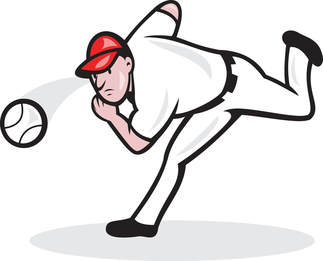|
(About a 10-minute read. This is a migration and updated post. It was first shared at the FUNdoing.com Blog. We are moving theoretical posts to OnTeamBuidling in an effort to organize content. Thanks for being here!)
Fast Ball is published in, Portable Teambuilding Activities (Cavert, 2015). (I've also posted the full description at the FUNdoing Blog site.) It's a challenging "mental model" activity where groups initially define (via Groupthink) a word (or direction) in one way and in order to be more successful they need to redefine something to break through a barrier or problem. (One of the strategies to innovate is to redefine something you believe is true in order to discover a more beneficial solution.)
After using this activity a few times, Jeremy, a fellow FUN Follower (and good friend) wrote me, asking: I have a question for you about the game Fastball. I have facilitated this activity mostly with college and adult groups and it does tend to take a while 30 min – 1 hr. for groups to complete. When the group finally gets it and is able to complete the challenge, there has been a common reaction of great let down and almost the look from participants like “You tricked us”. How have you led this activity so that it does not take so long that group members check out or become so frustrated by the end? It doesn’t bother me to frustrate a group or to raise the tension, but I’ve found it hard to bring the processing back around and be productive because the group is just done with it. Early on in my team building career, I struggled with this same issue when learning about and working with activities like Fast Ball. (Group Juggle to Warp Speed comes to mind - you create a tossing "order" standing in a circle but remaining in a circle is not a rule - forming a line in the same tossing order can lead to a faster time.) I tend to lead activities like this with adult groups (college age or older) in one of three ways: 1) When I have time (like Jeremy) I let the activity play out until the shift is made. And, as Jeremy found out, it can take up to an hour. I have experienced group reactions of success and powerful learnings, and frustration and projected blame on me, their facilitator. (Lots to talk about in both situations.) There have been times during the 'blaming' reaction where the group felt tricked and it was difficult to get them to focus back on any learnings that could be surfaced. These groups were not ready to see the learning(s) underneath the challenge. I'm sure I did my best, at the time, to move forward, but these (or any) reactions cannot be predicted. We do the best we can to program activities that will meet the objectives of our groups. (Here is another interesting topic to explore at another time: What are some strategies to bring a group "back" from a "negative" experience?)
2) Here is the way I lead Fast Ball most of the time (mostly because I don't have the time to let this play out). I frontload the activity with some information that might move the group to the shift in thinking quicker. I tell them:
"On the surface, this activity might seem relatively easy to accomplish. And it could be. You might "get it" right away. However, I've seen a lot of groups struggle with this one for one reason or another. The activity is designed to make you think. Remember, when approaching a challenge or task be mindful of the "problems" you encounter. Solve one problem at a time and keep moving. If you reach an impasse see this as an opportunity to be creative and innovative. I will hold you accountable to the rules and you are free to clarify my expectations about them at any time." After this frontload I let them play. I usually will remind them of some of the points in the frontload when they seem to be "stuck" - but for the most part, groups will make the shift and produce their fastest time within 30 minutes.
3) When I program experiences involving objectives related to mental models, paradigms, phantom rules, or simply making assumptions, I will use Fast Ball as one experience of many, to touch on the learning points. I will move into the "Educator as Teacher" role from time-to-time. I will ask more pointed questions like:
Depending on your experiential philosophy, asking these types of questions will not be your preference. As I've learned, there are a wide range of tools we can use, as educators, to reach our objectives (i.e., the objectives you have for the group or the objectives a group brings with them), other than giving a group the answers (there is less experiential learning in this method, but it could serve a purpose from time-to-time). However, I don't want to limit the tools at my disposal. Again, if I choose to point the group in a direction with Fast Ball (or another other mental model activity), it is by design. I've planned a number of these 'shifty' activities with the hope that my groups will move to different ways of defining and thinking on their own - a skill or behavior I want them to pick up and practice. A BIG thanks to Jeremy for sending me the inquiry. I hope I've provided some insight. Let me know what you thinking about these approaches. Leave a Comment below. All the best, Chris Cavert, Ed.D.
P.S. Would you like a super-quick update when new OnTeamBuilding content is posted? Just fill out the form below and then click the big blue button. I'll keep you posted.
0 Comments
Your comment will be posted after it is approved.
Leave a Reply. |
OnTeamBuilding is a forum for like-minded people to share ideas and experiences related to team building. FREE Team Building
Activity Resources OTB FacilitatorDr. Chris Cavert is an educator, author and trainer. His passion is helping team builders learn and grow. Archives
January 2024
|



 RSS Feed
RSS Feed